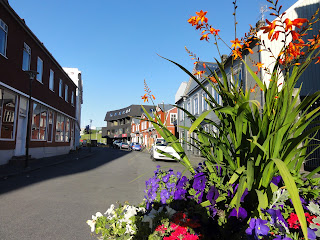We are a group of freshwater ecologists from the Biology Department at St. Catherine University in Saint Paul, Minnesota. Our research takes us to Iceland and other arctic regions where we are working to understand how temperature influences nitrogen fixation rates and metabolism in cyanobacterial assemblages. Nitrogen fixation is extremely sensitive to temperature and therefore nitrogen gas from the atmosphere may become more accessible to freshwater ecosystems as the climate warms. We are working to understand the potential ecological and environmental implications of changes in cyanobacteria species composition and nitrogen fixation rates in arctic lakes and streams.




No comments:
Post a Comment